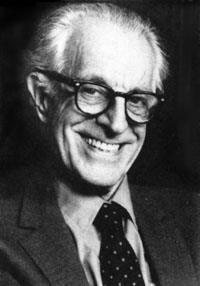EP05 State of the Art Address 11 - The State of the Art Rational Emotive Behavior Therapy in the Twenty-First Century - Albert Ellis, PhD
- Average Rating:
- Not yet rated
- Topic Areas:
- State of the Art Address | Rational Emotive Behavior Therapy (REBT) | Brief Therapy | Psychotherapy | Therapist Development
- Categories:
- Evolution of Psychotherapy | Evolution of Psychotherapy 2005
- Faculty:
- Albert Ellis, PhD
- Course Levels:
- Master Degree or Higher in Health-Related Field
- Duration:
- 57:01
- Format:
- Audio and Video
- Original Program Date:
- Dec 11, 2005
- License:
- Never Expires.
Description
Description:
Dr. Ellis will describe the up-to-date principles and practice of Rational Emotive Behavior Therapy (REBT) in the twenty-first century, how some people are trying to water it down, and what its future will probably be.
Educational Objectives:
- To name three ways REBT has been significantly updated in the 21st century.
- To name three ways REBT has been weakened recently by some therapists.
*Sessions may be edited for content and to preserve confidentiality*
Credits
Faculty

Albert Ellis, PhD Related Seminars and Products
Albert Ellis, PhD, was an American psychologist who in 1955 developed Rational Emotive Behavior Therapy (REBT). He held M.A. and Ph.D. degrees in clinical psychology from Columbia University and American Board of Professional Psychology (ABPP). He also founded and was the President of the New York City-based Albert Ellis Institute for decades.
He is generally considered to be one of the originators of the cognitive revolutionary paradigm shift in psychotherapy and one of the founders of cognitive-behavioral therapies.[2]
Based on a 1982 professional survey of US and Canadian psychologists, he was considered as the second most influential psychotherapist in history (Carl Rogers ranked first in the survey; Sigmund Freud was ranked third).[3][4] Psychology Today noted, "No individual—not even Freud himself—has had a greater impact on modern psychotherapy."[5]


